Former TV news anchor and LBJ-family insider Neal Spelce spins intriguing yarns in new memoir
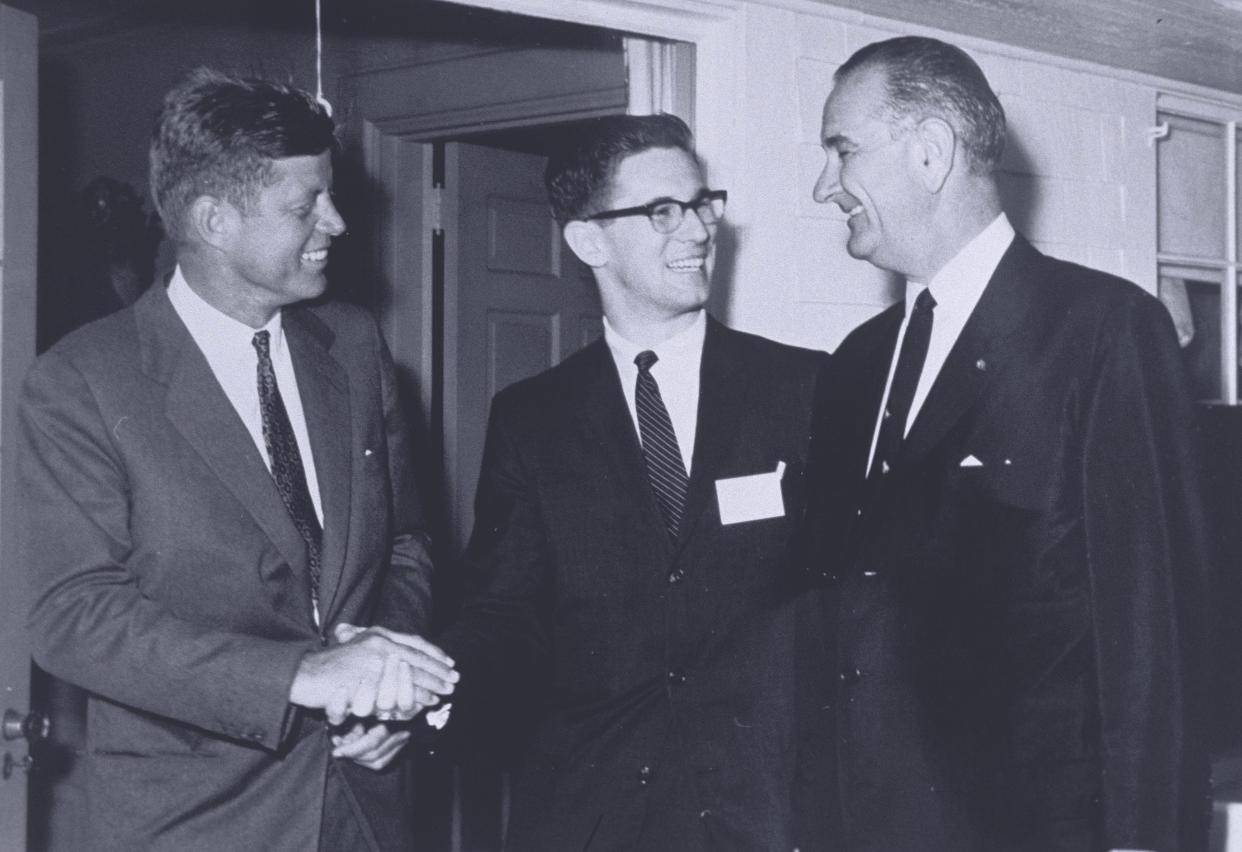
- Oops!Something went wrong.Please try again later.
- Oops!Something went wrong.Please try again later.
In one way or another, Neal Spelce has been involved in TV news almost since the birth of TV news.
He started working for the family of future President Lyndon Baines Johnson and Lady Bird Johnson at Austin's KTBC in 1956, just 16 years after Lowell Thomas hosted the first-ever, regularly scheduled news broadcast on television in 1940.
The Johnson-owned KTBC, founded in 1952, remained the only VHF TV channel in Austin until 1965. Its program director, late humorist Cactus Pryor, cherry-picked the best shows from the national networks — CBS, ABC, NBC and, before 1956, the now-gone Dumont Television Network.
Born in 1936, Spelce is perhaps best known as the newsman who broadcast live on the scene as Charles Whitman shot anyone who moved from his roost atop the University of Texas Tower on Aug. 1, 1966. His voice was heard across America as the first mass shooting on a college campus exploded all around him.
Spelce also enjoyed a long career as a TV news anchor and a media consultant. Along the way, he met the famous and the infamous, sweetening each encounter with a bit of his Arkansas country charm.
Tower Books, UT Press and the Briscoe Center for American History recently joined forces to publish his lively memoir, "With the Bark Off," a phrase that LBJ used when he opened the LBJ Presidential Library in 1971 as he promised a "warts and all" access to history.
I interviewed Spelce as soon as I finished the last page of this intriguing set of yarns that is also filled with crucial Texas, Austin and American history.
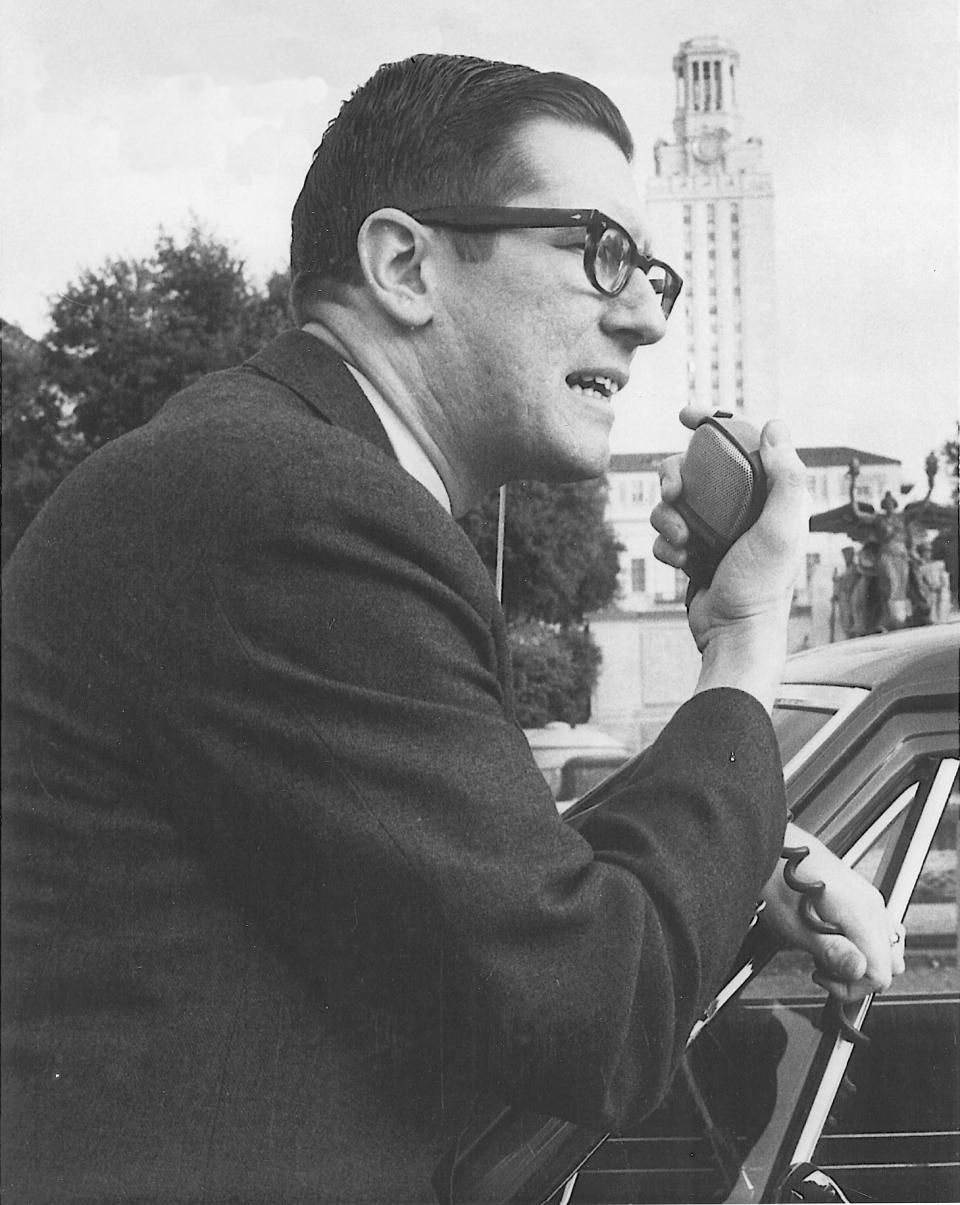
American-Statesman: You started your broadcast journalism career at an amazingly young age, right out of UT’s journalism school. To what do you attribute your fast start?
Neal Spelce: First of all, TV news was in its early stages. Very few experienced hands were in the business. You didn't need any technological expertise. In fact, the first camera I used to cover a story was a black-and-white still Polaroid that took one picture at a time and you had to wait to see the image.
As far as content, we pretty much had a blank slate and only 15 minutes to fill. Good journalism, though, was the undisputed standard. By the way, (humorist) Cactus Pryor told me: "Neal, you started at the right time. Back then, you didn't have to be good-looking to be on TV."
For decades, you worked closely with the Johnson family, who owned a powerful radio station, KLBJ, and for a while, the only VHF TV station, KTBC, in town. How did that affect your reporting of the news?
The daily challenge was simply to do the best job you could. The Johnson family kept hands-off the news operation. We were free to excel — or screw up. I do recall getting a call from (a) Time magazine (reporter) who was surprised when we led our prime newscast about a scandal involving the LBJ administration. I didn't think a thing about it. Why not cover the scandal? It was the biggest story of the day.
I was fascinated by your stories about the early TV years, and how you shared material with your colleagues in other Texas cities, making up an informal statewide news network. What was that like?
We were ahead of our time, before technological advances showed just how primitive our effort was. My fellow TV news directors — Eddie Barker (KRLD-TV, Dallas), Dan Rather (KHOU-TV, Houston) and Al Anderson (WOAI-TV, San Antonio) — shared our top stories of the day with one another.
More: Texas history: When Texans read their news in German
How did we do that? Well, we made black-and-white film duplicates of our stories, stowed them in yellow grapefruit sacks, and handed the bags to flight attendants on the local Trans-Texas Airways flights — fondly called "Tree-Top Airways" — to be grabbed upon arrival by our local TV staffers.
Bingo! Each of our stations had statewide content, long before satellites and other means of instant communication made it simple. I was really proud of our pioneering effort.
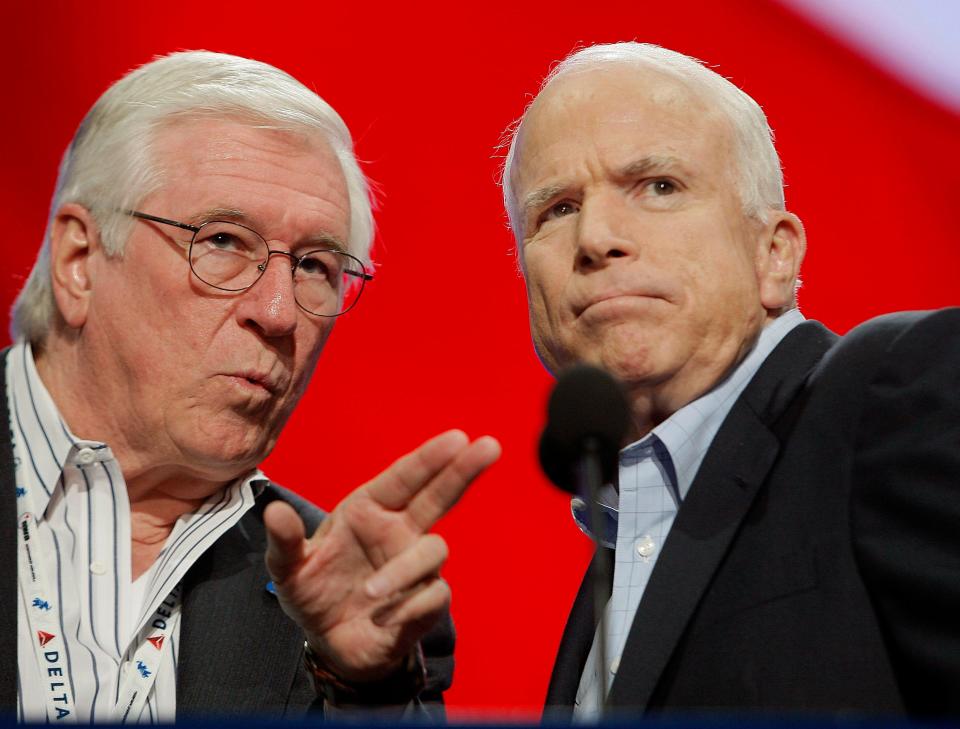
One of the most charming aspects of the book is your modesty. Most of the jokes are on you. Was this your secret weapon? And if so, please share a story related to your lack of ego.
I don't know if it's a secret weapon. Believe me, TV can be pretty humbling. Your mistakes, your flaws, are hanging out there for everyone to see.
Basically, I love humor — especially the self-deprecating kind. I mean, why not join others in laughing at you? I also am a great believer in candor. I don't agree with that old political bromide about "sincerity: once you learn to fake that, you've got it made!"
Maybe that works for politicians, but not for on-camera personalities. Viewers can see through that deception night after night. No sir, I believe in telling it "With The Bark Off," like the title of my memoir. And if you are not cast in the best light, well, that's just the way it is.
For 90 minutes are or so, yours was the voice that everyone in America tuned in to hear, as your live report of the UT Tower shooting on Aug. 1, 1966, was broadcast around the country. So many articles, books and movies have retold that story, but you were not only there, but in the line of fire. What do we still get wrong about Charles Whitman and the Tower shooting?
The more I think about it, the more I realize what we get wrong is "why." This event has been reported and analyzed over and over during the past 56 years. And I have been a part of many of those reports.
Oh, there have been many conclusions put forth about "why" one man killed 15 people and badly injured 31 others. A brain tumor? Brain experts dismissed that. Hatred of his father? True, the sniper wrote about that. But does hatred of one man in Florida lead his son to climb to the top of Austin's UT Tower and commit the worst mass school shooting in history at that time?
Guns? Yes, he was a military marksman, but he had never had a previous firearms conviction. Mental derangement? Of course, something was wrong, but what exactly? Pure evil? That has also been suggested, just as have other theories. After a half-century, I'm afraid the definitive "why" will never be known.
I love your Darrell Royal stories. Please recount the encounter with truckers in an Oklahoma bar.
Darrell Royal was one of the greatest college football coaches of all time. And even though a former president of the United States thought Darrell had all the qualities to become a leader of the Free World, Darrell was as down-to-earth a person as you will find.
Let me give you an example. Darrell and I were invited to attend a ceremony in tiny Chickasha, Oklahoma. He grew up in Oklahoma and folks there treated him like a rock star. After the hugely attended ceremony, they invited us to a banquet.
More: Look in your own backyard for unexpected, authentic Texas
Darrell declined and instead called an old friend and suggested we go have a beer before returning to Austin. His friend, whose name I never did get, took us to a little roadhouse bar out in the country where lots of 18-wheelers were parked outside a modest frame house.
After a while, I played some country songs on the juke box that Darrell might like. Darrell by then was talking to some truckers. When I walked over to Darrell, one of the truckers looked at me and asked, "Is this guy a friend of yours? Says he's Darrell Royal. That right?" Yep, I said. "No, he's not, he's a trucker."
He didn't believe me or Darrell. Turns out Darrell had been talking truck talk to these guys, not a word about football. Typical Darrell. By then, I asked Darrell if he was ready to leave. He said we needed to wait for his friend who had gone to the back of the roadhouse bar. Not sure, but I think we were drinking beer in a whorehouse.
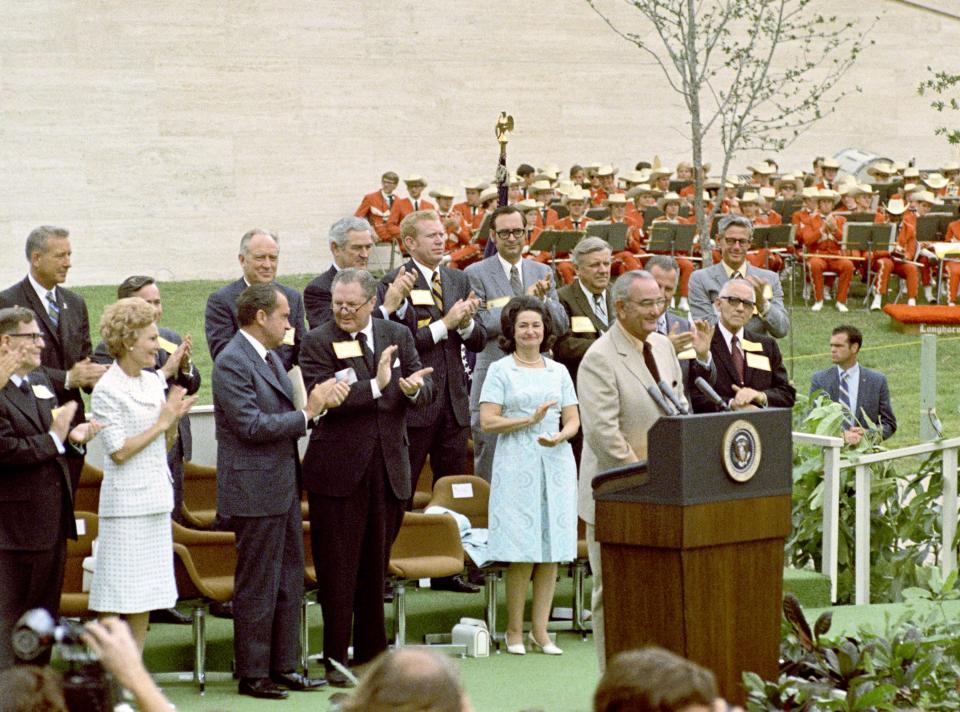
You were chosen to plan the grand opening of the LBJ Presidential Library in 1971. What’s your favorite anecdote from that challenging event?
You don't mean the times LBJ chewed my butt out? Or the time I lied to President Richard Nixon, right?
Actually, one of my favorite incidents in retrospect had to do with the powerful chairman of the UT Board of Regents, Frank Erwin. Erwin was responsible for UT building the LBJ Library. As such, I answered to him as well as to LBJ.
For purposes of this story, you need to know Erwin was no amateur when it came to drinking. So, when he suggested the thousand VIP guests would want a drink after the noontime ceremony, I said "Mr. Chairman, we can't do that." It was illegal at that time to serve whiskey on UT property. What if we get busted?
"OK, Neal, I understand." That was that. I thought. But at the moment the nationally televised ceremony ended with a flourish, bartenders wheeled out portable bars, fully stocked with premium brands, all over the library area. Whiskey flowed.
I went looking for Erwin. He just looked at me and grinned, sipping a Scotch. I won't mention what I muttered under my breath. Not sure if he paid for the liquor personally or somehow hid the expenditure inside the UT budget. Wouldn't be surprised either way.
Here’s a part of your amazing life that I didn’t know about: You coached the TV convention speeches or debate appearances of Mario Cuomo, Ann Richards, John McCain and Sarah Palin. What are the highlights of your advice to all of them?
John McCain admitted he was not a good speaker. The others were excellent speakers. But my advice to all four was the same.
Look, a speech to thousands of screaming, applauding convention-goers is a very disconcerting experience. It can knock you off your game. And the audience in the convention hall is supportive, no matter if you belch mid-sentence.
The most important audience is the millions of TV viewers sitting in the relative quiet of their homes. When talking to a massive crowd, the natural tendency is to speak loudly — to be heard. But Joe and Jane SixPack sitting at home don't wanna be yelled at.
So my advice was simple: Treat the momentous speech as a one-to-one conversation. Don’t try to win the William Jennings Bryan Oratory Award. Don't make it a performance. Be conversational. Keep an even tone. Persuasive. Convincing. Candid. Believable. Look directly into the TV camera so you come across as speaking directly, intimately, with the viewer.
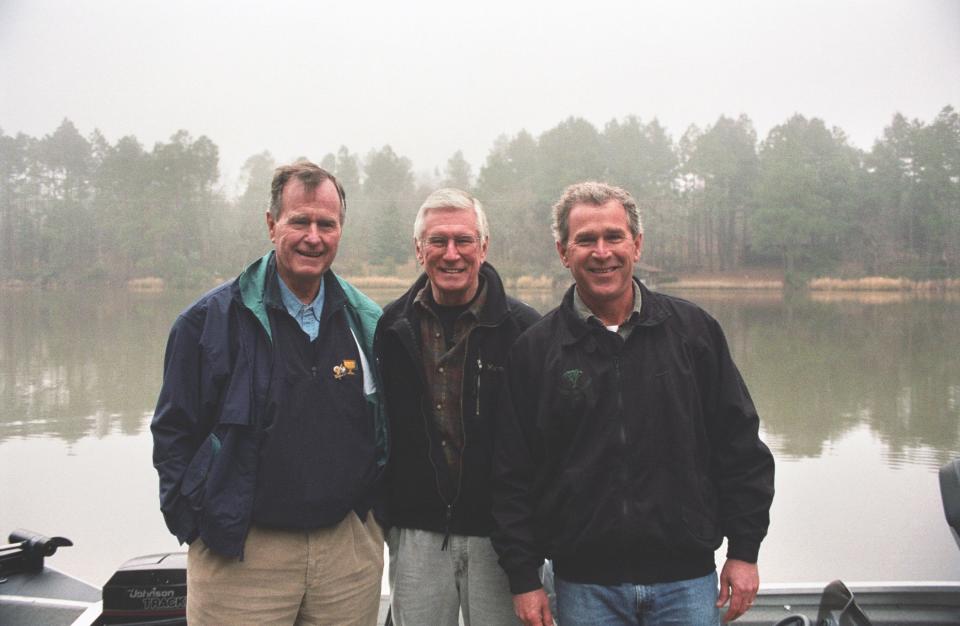
There’s so much history in this book that we can’t elaborate on here, but among the other personalities and world leaders that you interacted with, who were the most memorable and why?
Oh my, Michael, there were so many. For many different reasons. But since you pin me down, I have to single out John McCain.
He wasn't a president or a world leader or a well-known cultural celebrity. But he was so genuine — someone you enjoy sitting down with and sharing stories over a beer — which we did.
But more than that, after he told me during a small, quiet dinner about the torture and horrors he endured as a prisoner of war, I saw deeply into the man's character. Let me tell you, the word "respect" is way too weak when I think about what this man went through.
Feisty, yes. Resolute, even more so. Determined, most certainly. And the understanding of his own failings and strengths came through loud and clear. Memorable? Oh yeah, by all means.
The book is peppered with sound lessons for budding journalists — congrats by the way on the naming of the Neal Spelce Broadcast Journalism Studio 4E at UT's Moody College of Communications — but how would you condense those lessons into a few sentences?
This may be naïve and Pollyanna-ish, but to be a successful and respected journalist you must be objective, thorough and fair, with personal biases removed as far as possible from your reporting.
For those who aspire to be a TV journalist, first learn to write carefully crafted, coherent reports. The word "write" is all-important. It's not enough to look good and have a gift of gab.
Writing gives structure to your thoughts. And builds your skills for ad-libbing.
Michael Barnes writes about the people, places, culture and history of Austin and Texas. He can be reached at mbarnes@statesman.com.
This article originally appeared on Austin American-Statesman: LBJ-family insider and TV anchor Neal Spelce entertains in new memoir

